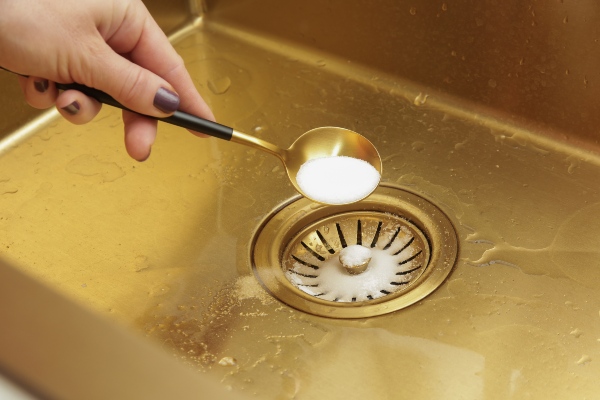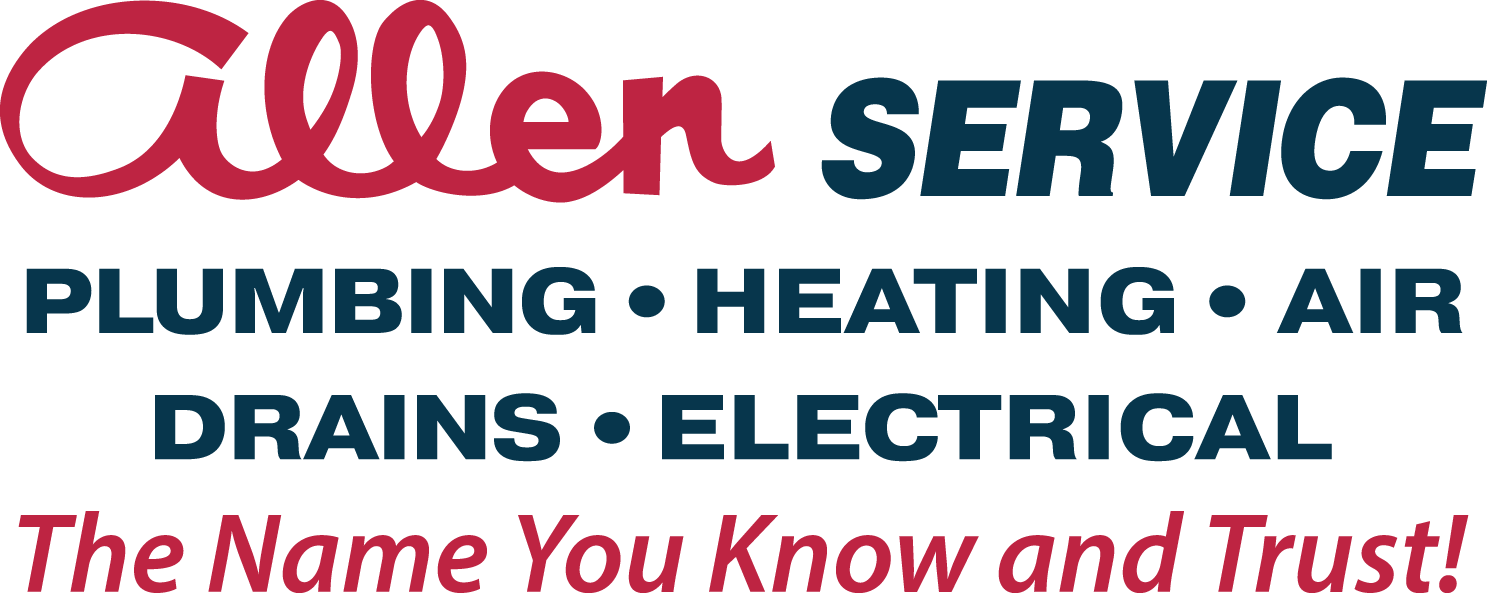
How Do You Clean Sink Drains Naturally
Keeping your sink drains clean is essential for a hygienic, fresh-smelling home and helps prevent frustrating clogs. If you ask, “How do you clean sink drains in Form Collins and Northern Colorado?” Allen Service has you covered with safe, organic, and DIY solutions. These eco-friendly methods are both budget-friendly and non-toxic, making them a healthier choice for you and the environment. In this guide, we’ll share easy, step-by-step tips to remove buildup, keep odors at bay, and maintain clear, smooth-running drains. Keep reading for practical advice to keep your home running without a hitch.
Why Do Sink Drains Get Dirty and Clogged?
Sink drains can become dirty and clogged due to everyday use and the buildup of common materials. Food scraps, grease, soap scum, and hair are frequent culprits. Grease and oils solidify as they cool, sticking to pipe walls and narrowing the drain’s flow. Soap scum can combine with minerals in water, creating residue that clings inside pipes. Hair, whether in bathroom sinks or showers, tangles and collects, forming stubborn blockages. Without regular maintenance, these issues can escalate. Neglecting drain maintenance leads to several issues over time. Some of the most common issues include:
- Bad Smells—Debris stuck in a dirty drain rots, releasing unpleasant odors into your home. Ignoring these smells allows them to worsen, making parts of your home less inviting.
- Slow Drainage – Clogs reduce water flow, making the sink drain slowly. Over time, what begins as a manageable inconvenience can develop into a complete blockage.
- Potential Plumbing Issue—Blocked drains strain your plumbing system. If left unresolved, persistent clogs can lead to pipe damage or leaks, resulting in costly repairs.
Learn How to Clean a Clogged Drain Naturally
Keeping your sink drains clean doesn’t require harsh chemicals. You can tackle clogs, odors, and buildup using organic and DIY drain cleaning methods that are affordable and eco-friendly. These simple solutions rely on everyday household items and are effective for various issues, from grease to unpleasant smells. Below, we’ve outlined several techniques to help you keep your sink in top condition. Choose the natural drain cleaner that works best for your situation and easily enjoy clean, fresh-smelling drains.
- Baking Soda Vinegar Drain Cleaner – Combine ½ cup of baking soda and ½ cup of vinegar, pouring them into the drain one after another. Cover the drain and allow it to sit for 15-20 minutes, then flush with boiling water. The chemical reaction between the two ingredients helps break apart debris stuck in the pipes, making it an efficient solution for general clogs.
- Boiling Water Flush – Bring a kettle of water to a boil and pour it directly into the drain. This method is great for removing light grease, soap scum, or loosening organic buildup. Use it regularly as a simple preventative measure to keep your drains flowing.
- Salt and Baking Soda Combo – Mix ½ cup of salt and ½ cup of baking soda, then pour the mixture into the drain. Allow it to sit overnight before flushing with hot water. The salt adds an abrasive quality that helps scrub away tougher clogs, making it ideal for persistent blockages.
- Lemon Juice for Odor Removal – Pour fresh lemon juice into the drain, letting it sit for 30 minutes before rinsing with warm water. Lemon juice neutralizes odor, while its natural antibacterial properties help sanitize the drain. This method will leave your sink smelling fresh and clean.
Explore a Few Drain Cleaner Natural Alternatives
When dealing with minor clogs or slow-draining sinks, natural alternatives provide an effective, chemical-free solution. They are safer for your household and better for the environment. Homemade drain cleaner methods use simple pantry staples to remove buildup and improve drain flow. These solutions work best when used regularly as maintenance or for mild clogs. Here are a few recipes and methods that show how to clean drains without chemicals:
- Dish Soap and Hot Water—Add a few drops of degreasing dish soap to the drain, then pour hot water down. This works well for breaking down greasy buildup from oils and fats.
- Cream of Tartar and Baking Soda – Mix two tablespoons of cream of tartar with ½ cup of baking soda and pour it into the drain. Wait 30 minutes and rinse with boiling water for effective blockage removal.
- Borax and Lemon Juice—Mix ¼ cup of borax with ¼ cup of lemon juice, then pour the mixture into the drain. After an hour, the mixture effectively breaks apart grime and leaves a fresh scent behind when rinsed with hot water.
Preventative Measures to Keep Your Drains Clean
Maintaining clear sink drains begins with mindful daily practice. Scrape plates thoroughly before rinsing them to keep solid food waste from your pipes. Choose biodegradable cleaners over harsh chemicals, which can corrode pipes over time. Periodically, use a mixture of baking soda and vinegar to break down the buildup naturally. You should also check your drain covers or strainers routinely to prevent clogs caused by food waste. Avoid overloading your garbage disposal, as excessive use can lead to blockages. These proactive strategies preserve the efficiency of your drains while extending the lifespan of your plumbing system.
When Should You Call a Professional?
Some plumbing issues go beyond what can be resolved with simple DIY techniques and require the expertise of a professional. Ignoring the signs of severe blockages or damaged pipes can lead to costly repairs and more. Recognizing when it’s time to call for professional help ensures your drainage system is properly addressed, preventing further damage and maintaining the comfort of your home. We’ve compiled some common signs indicating your DIY drain cleaning methods may not be enough and require expert attention:
- Persistent Clogs – If your drains remain slow or completely blocked after multiple attempts to fix them, the issue could stem from deep within your pipes. Professional plumbers have access to advanced tools capable of addressing hard-to-reach blockages.
- Strange Noises – Gurgling or bubbling noises from your pipes suggest air trapped in the system, often due to severe clogs. These sounds indicate a problem that requires professional diagnostics and equipment to resolve.
- Water Backing Up—If water starts to back up into your sinks, tubs, or showers, it’s more than a nuisance. This is often a sign of a significant blockage in your system that only a professional can properly assess and fix.
Clear Your Drains With Our Plumbing Experts
When you need reliable, expert assistance maintaining your home’s plumbing, Allen Service is just a call away. We’ve served Fort Collins and Northern Colorado for over 60 years, providing high-quality drain cleaning services as part of our comprehensive plumbing solutions. Contact us today to schedule a service appointment or learn about how we can help you maintain your plumbing—all at an affordable price. Trust our team for all your home comfort needs.
